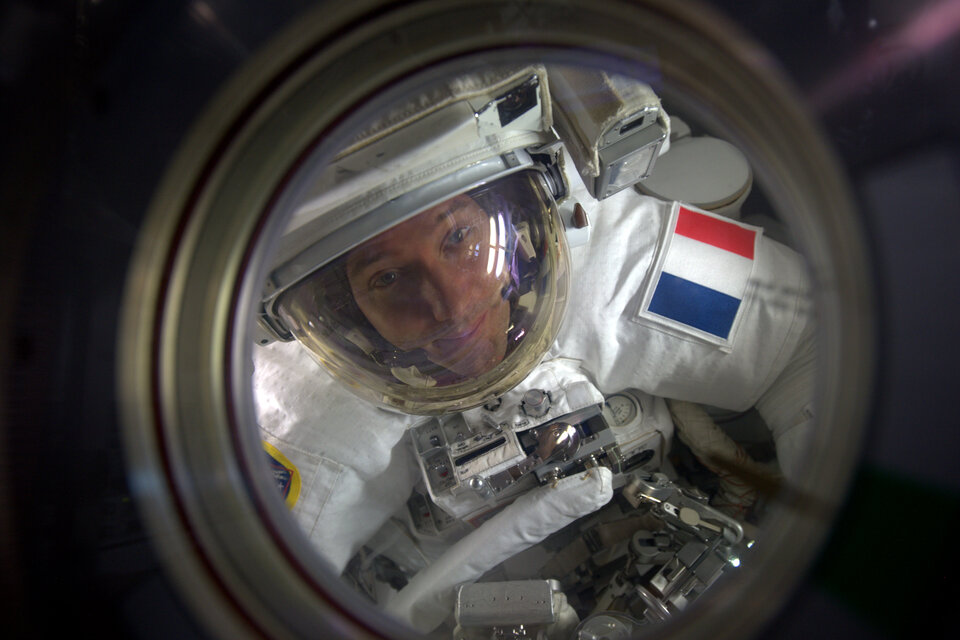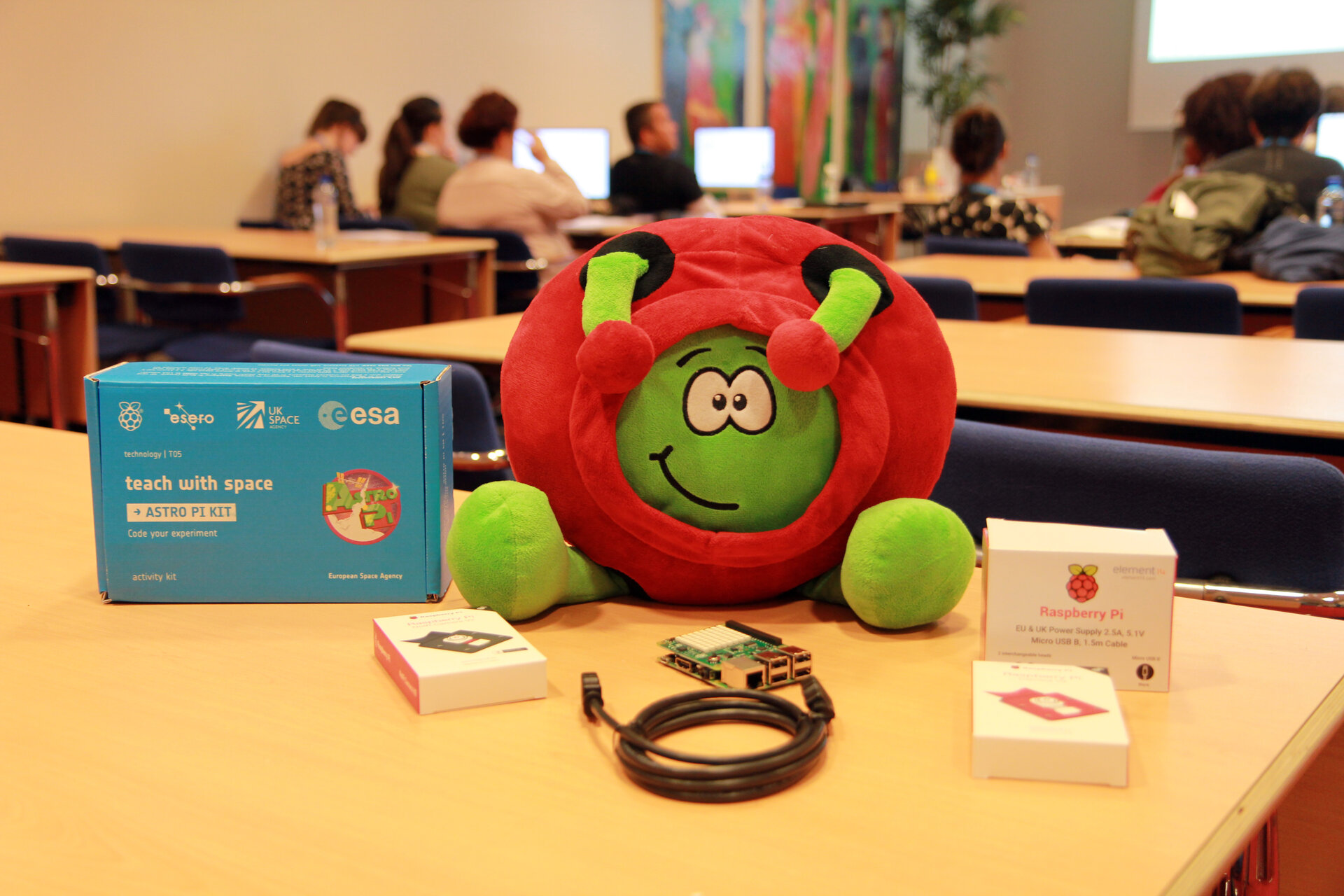Astro Pi Mission Space Lab 2020-21: 398 teams selected for Phase 2
ESA and the Raspberry Pi Foundation are delighted to announce that the European Astro Pi Challenge: Mission Space Lab’s phase 2 has begun, with 428 teams from 23 countries having submitted their entries!
The 398 selected teams will now have a chance to write computer code for the scientific experiments they want to send up to Astro Pi Ed or Astro Pi Izzy to run aboard the International Space Station!
Teams will investigate ‘Life in Space’ or ‘Life on Earth’ by using the sensors, cameras, and LED screens of the Astro Pis Ed and Izzy on board the station.
ESA and the Raspberry Pi Foundation are impressed by the creativity and wide variety of proposals received, and are looking forward to the exciting science that will be performed on the ISS.
This year’s Astro Pi ambassador, ESA astronaut Thomas Pesquet, is also looking forward to following the students’ journeys directly from the ISS in April and May, when the selected codes will be run.
The results of Phase 1 will be shared with all teams by email, and Astro Pi kits will be sent out to the teams that have been accepted into Phase 2 of the challenge.
Astro Pi Kits

With the Astro Pi kits the teams will then have the opportunity to familiarise themselves with the Astro Pi, the cameras, and all the sensors before they write and test their code.
To use the kit, teams will need a monitor, a USB keyboard, and a USB mouse.
The Astro Pi kit contains everything the teams need to run their experiments, including:
- A Raspberry Pi computer
- A Sense HAT and two cameras (one for visible light like Astro Pi Ed’s, and one for near-infrared light like Astro Pi Izzy’s one)
- 2 SD cards
- Desktop Coding Environment
- Flight Hardware Testing
- Power Supply
- HDMI cable & HDMI to VGA converter
Using the Astro Pi
Teams can watch our tutorial videos to explore the Astro Pi kit, and learn how to assemble it.
The teams accepted into Phase 2 webinar will also be invited via email to join a dedicated webinar on 7 December 2020 at 20:00 (CET) where it will be shown how to use the Astro Pi, and where they will have the opportunity to ask questions to ESA and Raspberry Pi Foundation experts.
Get your coding right
Phase 2 teams should give particular attention to the Phase 2 guide, containing essential information about how to write a program without errors so that it will achieve Flight Status, and what is and isn’t possible with the Astro Pi hardware and software. Teams must comply with the requirements stated in the Phase 2 guide in order to progress to Phase 3.
More supporting resources can be found on the Astro Pi website.
Questions?
ESA and the Raspberry Pi Foundation wish you the best of luck in conducting your own scientific investigations and collect data from space!
If you have questions regarding the European Astro Pi Challenge, send them to astropi@esa.int.
About the European Astro Pi Challenge
The European Astro Pi Challenge is an ESA Education project run in collaboration with the Raspberry Pi Foundation. It offers students and young people the amazing opportunity to conduct scientific investigations in space by writing computer programs that run on Raspberry Pi computers on board the International Space Station (ISS). The Astro Pi Challenge is divided into two separate missions with different levels of complexity: Mission Zero (the basic mission), and Mission Space Lab (more advanced level). Mission Zero is now open to teams of students and young people who are aged 14 years or younger and are from ESA Member States, ESA Associate Member States, and Malta (1). You can find more information about Mission Zero here.
(1)
ESA Member States in 2020:
Austria, Belgium, Czech Republic, Denmark, Estonia, Finland, France, Germany, Greece, Hungary, Ireland, Italy, Luxembourg, The Netherlands, Norway, Poland, Portugal, Romania, Spain, Sweden, Switzerland and the United Kingdom.
ESA Associate States in 2020: Canada, Slovenia and Latvia
In the framework of the current collaboration agreement between ESA and the Republic of Malta, teams from Malta can also participate in the European Astro Pi Challenge. ESA will also accept entries from primary or secondary schools located outside an ESA Member or Associate State only if such schools are officially authorised and/or certified by the official Education authorities of an ESA Member or Associate State (for instance, French school outside Europe officially recognised by the French Ministry of Education or delegated authority).


